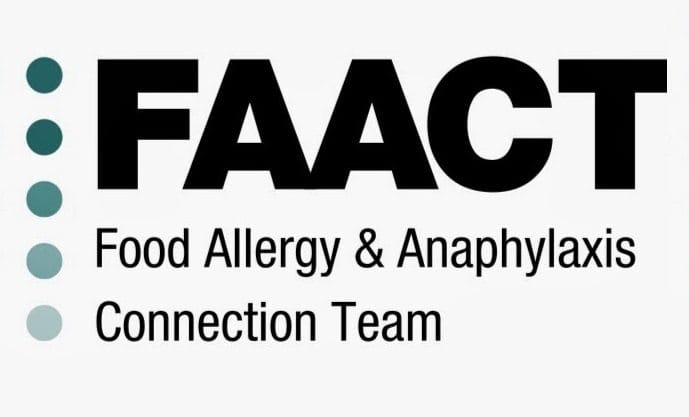
Updated April 24: Nonprofit advocates were confident that bipartisan lawmakers sponsoring the FASTER Act, a proposed food allergy law, would move quickly to get this passed in the new session of U.S. Congress. And fast action on FASTER is what we are seeing.
On March 3, 2021, the Senate unanimously passed the Senate version of the bill, which would make sesame the ninth top U.S. allergen along with other food allergy research measures. The success of that bill, introduced by Sen. Tim Scott (R-SC) and Christopher Murphy (D-CT), comes just a week after a companion bill was introduced in the House of Representatives.
If it becomes law, the FASTER Act (Food Allergy Safety, Treatment, Education, and Research) would add sesame to eight other major allergens that the FDA requires food makers to label clearly on food packaging. [Update: On April 23, President Biden signed FASTER Act into law. See article.]
Lisa Gable, CEO of FARE, the largest food allergy nonprofit, says she’s “delighted” with the Senate vote. Yet, she and her team are taking nothing for granted with the House bill. They organized a virtual assembly March 8 to 10 – called Courage at Congress 2021 – for food allergy families.
At this online townhall, allergy advocates heard from experts on allergy research and from Congressional FASTER Act sponsors. Then on March 10, they had the chance to lobby their state representatives virtually – and urge support for the House bill (HR 1202).
“This fly-in, with more than 400 food allergy champions participating, with more than 169 meetings scheduled, is going to be absolutely imperative to moving the bill forward,” Gable said ahead of the townhall. She calls FASTER her organization’s biggest legislative priority.
Sesame: A Difficult Allergen
Rep. Doris Matsui (D-CA) and Rep. Patrick McHenry (R-NC) are co-sponsors of the House bill. On Feb. 26, Matsui said she was proud to reintroduce the bill with bipartisan colleagues, “and together we are encouraged that support for labeling sesame will only grow in this new Congress. Food allergy families are truly resilient, and together we are working hard to make sure that this bill gets across the finish line.”
Sesame allergy affects about 1.5 million Americans, and is an increasingly common and difficult ingredient to avoid. It currently can be hidden behind vague terms such such as “natural flavors” or “spices”.
Food Allergy’s Seat at the Federal Table
What’s sometimes overlooked is that FASTER contains several other key elements. It would require the Department of Health and Human Services to issue a report on federal activities related to:
– the gathering of data on food allergy prevalence and severity of reactions to foods;
– the development of effective food allergy treatments and testing;
– prevention of food-allergic disease and more.

While FASTER would amend Section 201 of the federal Food, Drug and Cosmetic Act to add sesame to the top allergens list, it also requires that scientific criteria be developed so that other foods may be considered for this status in future, as needed. (Criteria would include prevalence and severity of reactions.)
“Right now, there’s no process to identify what threshold an allergen must meet and the severity of patient reactions to it in order for it to qualify to be identified [as a top allergen] on the label,” says Gable. “That’s a huge missing piece of the safety net for patients.” She says that with all the patients in FARE’s clinical network of 50 allergy clinic sites, “we can assemble that missing data.” The nonprofit is working with the food safety experts at the University of Nebraska on how data is collected.
Another important development for federal government involvement in food allergy is the launch of the Congressional Food Allergy Research Caucus, to be chaired by bipartisan community supporters Matsui and McHenry. Gable says that with the “amazing amount of support and co-sponsorship” in the last session, when FASTER came close to passing, “this is now being stabilized into an actual caucus.”
The Asthma and Allergy Foundation of America (AAFA) and the American Academy of Allergy Asthma & Immunology are also working to support the FASTER Act.
Related Reading:
Advocates’ 2021 Effort to Make Sesame 9th Top Allergen
Sesame Allergy Emerges as a Significant U.S. Health Issue





